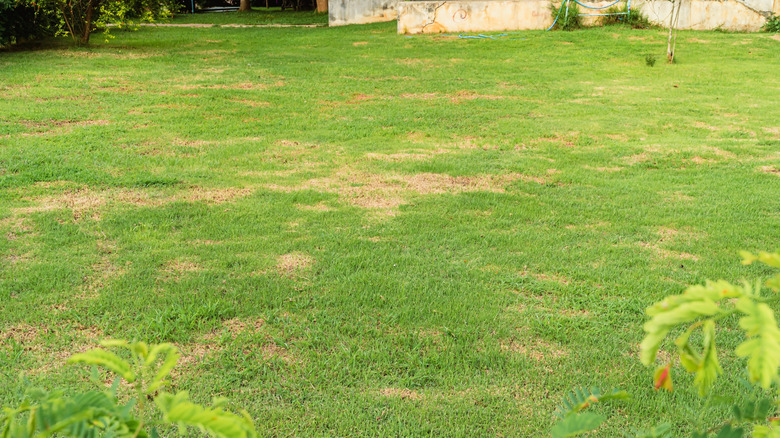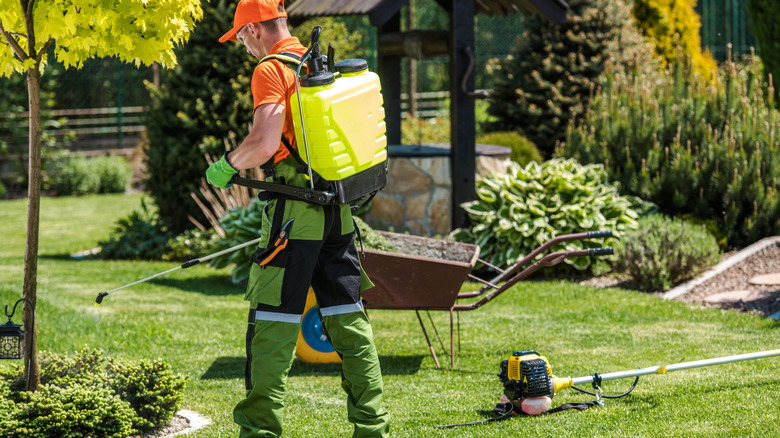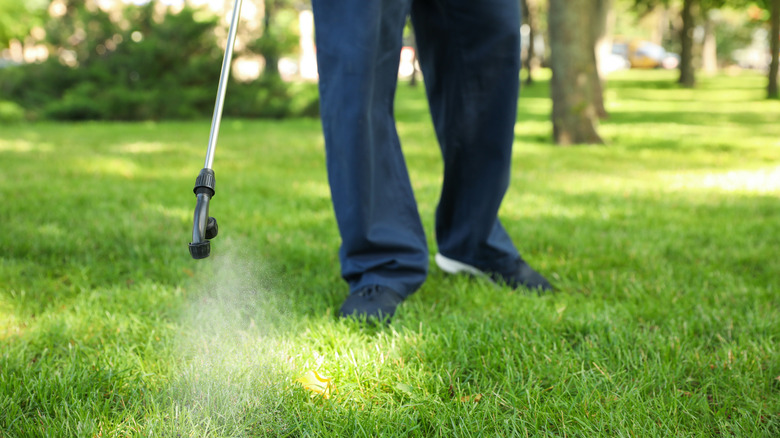Why Do People Use Hydrogen Peroxide To Kill Grass Fungus & Does It Actually Work?
Grass fungus is caused by fungal spores that live in the soil and germinate in warm, damp conditions. This is when your lawn is most susceptible to fungus. Most fungus diseases exhibit either patches of yellow grass or yellow spots on the blades of grass. In an effort to limit the amount of chemical products used on the lawn, many people turn to using hydrogen peroxide to kill these fungal infections. Hydrogen peroxide is a natural product — it's just water with an additional molecule of oxygen — and it's readily available and fairly inexpensive to purchase.
While it's great to use a natural product in your garden rather than reaching for a chemical solution, there are limitations and a single application of a hydrogen peroxide solution to your lawn isn't going to completely kill any fungus disease present or help to control the spread. Constant and repeated applications are necessary, and this is usually too much effort for most people when a registered fungicide could eliminate the disease faster and prevent it from recurring.
Does using hydrogen peroxide to treat lawn fungus work?
While hydrogen peroxide does have the ability to kill fungus, it actually needs to come into contact with the disease immediately upon use. So, in other words, the hydrogen peroxide solution that's sprayed on the lawn will not be active very long and the solution doesn't have the ability to move through the blades of grass for effective long term control. The fungal spores living in the soil will continue to be splashed up onto the blades of grass every time it rains and will continue to infect the lawn again.
In order to control the fungus infection completely, the hydrogen peroxide solution would have to be applied on a daily basis just to treat the fungus that's currently active. However, a repeated application of a concentration that's too high could actually burn the blades of grass. On the plus side, hydrogen peroxide is very useful for cleaning and sterilizing gardening tools, plant trays, pots, and garden stakes, thanks to its immediate reaction with bacteria and fungal diseases. In fact, hydrogen peroxide can even breathe new life into your beloved garden tools.
What are more effective ways to treat lawn fungus?
Unfortunately, there are no totally natural methods that will effectively kill fungus infestations in your lawn. Rather, good cultural practices such as applying organic fertilizers, regular mowing, watering and dethatching the grass will all help healthy growth and make the grass less susceptible to fungus diseases.
However, there are products labeled as organic fungicides that can be used on your lawn to help control these diseases. For example, sulfur has been used for centuries as an effective fungicide. It has the ability to stop fungal spores from germinating, so it's more helpful when applied as soon as you notice evidence of fungus in your lawn to prevent the disease from spreading. It's important to follow the instructions when applying a fungicide such as sulfur as it shouldn't be applied on hot days with temperatures above 80 degrees Fahrenheit to avoid damage to your lawn.
Copper is another effective fungicide that will also help to control bacteria, but it needs to be carefully applied as per the instructions on the label so that it doesn't damage your lawn. Essentially, when dealing with grass fungus, it's useful to identity the particular fungus so that you can decide which fungicide is best for your lawn care needs.


